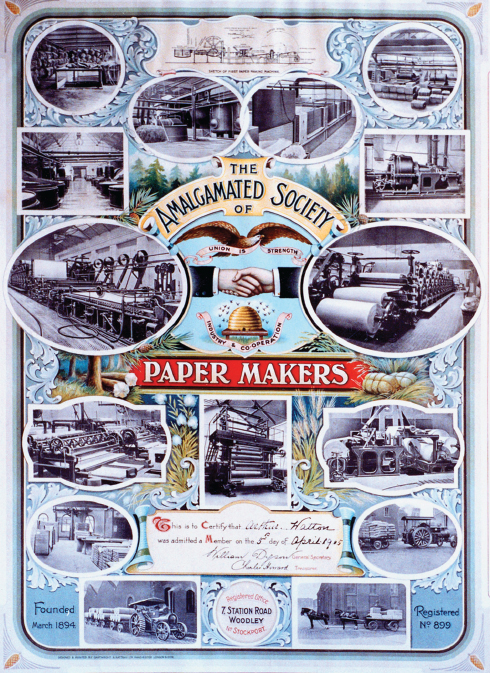Understanding World Societies:
Printed Page 702
> How did the changes brought about by the Industrial Revolution lead to new social classes, and how did people respond to the new structure?

Union Membership Certificate
This handsome membership certificate belonged to Arthur Watton, a properly trained and certified papermaker of Kings Norton in Birmingham, England. Members of such unions proudly framed their certificates and displayed them in their homes, showing that they were skilled workers. (Courtesy, Sylvia Waddell)
This handsome membership certificate belonged to Arthur Watton, a properly trained and certified papermaker of Kings Norton in Birmingham, England. Members of such unions proudly framed their certificates and displayed them in their homes, showing that they were skilled workers. (Courtesy, Sylvia Waddell)
IIN GREAT BRITAIN industrial development led to the creation of new social groups and intensified long-